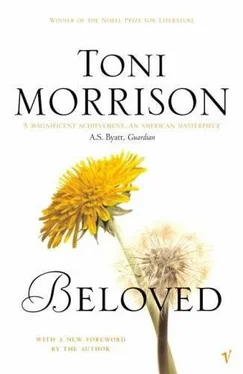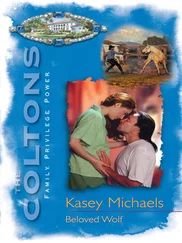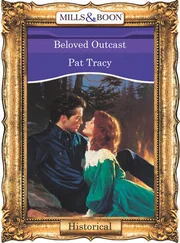Why did she do that when she was just about to smile at me? I wanted to join her in the sea but I could not move; I wanted to help her when she was picking the flowers, but the clouds of gunsmoke blinded me and I lost her. Three times I lost her: once with the flowers because of the noisy clouds of smoke; once when she went into the sea instead of smiling at me; once under the bridge when I went in to j oin her and she came toward me but did not smile. She whispered to me, chewed me, and swam away. Now I have found her in this house. She smiles at me and it is my own face smiling. I will not lose her again. She is mine.
Tell me the truth. Didn't you come from the other side?
Yes. I was on the other side.
You came back because of me?
Yes.
You rememory me?
Yes. I remember you.
You never forgot me?
Your face is mine.
Do you forgive me? Will you stay? You safe here now.
Where are the men without skin?
Out there. Way off.
Can they get in here?
No. They tried that once, but I stopped them. They won't ever come back.
One of them was in the house I was in. He hurt me.
They can't hurt us no more.
Where are your earrings?
They took them from me.
The men without skin took them?
Yes.
I was going to help you but the clouds got in the way.
There're no clouds here.
If they put an iron circle around your neck I will bite it away.
Beloved.
I will make you a round basket.
You're back. You're back.
Will we smile at me?
Can't you see I'm smiling?
I love your face.
We played by the creek.
I was there in the water.
In the quiet time, we played.
The clouds were noisy and in the way.
When I needed you, you came to be with me.
I needed her face to smile.
I could only hear breathing.
The breathing is gone; only the teeth are left.
She said you wouldn't hurt me.
She hurt me.
I will protect you.
I want her face.
Don't love her too much.
I am loving her too much.
Watch out for her; she can give you dreams.
She chews and swallows.
Don't fall asleep when she braids your hair.
She is the laugh; I am the laughter.
I watch the house; I watch the yard.
She left me.
Daddy is coming for us.
A hot thing.
Beloved
You are my sister
You are my daughter
You are my face; you are me
I have found you again; you have come back to me
You are my Beloved
You are mine
You are mine
You are mine
I have your milk
I have your smile
I will take care of you
You are my face; I am you. Why did you leave me who am you?
I will never leave you again
Don't ever leave me again
You will never leave me again
You went in the water
I drank your blood
I brought your milk
You forgot to smile
I loved you
You hurt me
You came back to me
You left me
I waited for you
You are mine
You are mine
You are mine
IT WAS a tiny church no bigger than a rich man's parlor. The pews had no backs, and since the congregation was also the choir, it didn't need a stall. Certain members had been assigned the construction of a platform to raise the preacher a few inches above his congregation, but it was a less than urgent task, since the major elevation, a white oak cross, had already taken place. Before it was the Church of the Holy Redeemer, it was a dry-goods shop that had no use for side windows, just front ones for display. These were papered over while members considered whether to paint or curtain them-how to have privacy without losing the little light that might want to shine on them. In the summer the doors were left open for ventilation. In winter an iron stove in the aisle did what it could. At the front of the church was a sturdy porch where customers used to sit, and children laughed at the boy who got his head stuck between the railings. On a sunny and windless day in January it was actually warmer out there than inside, if the iron stove was cold. The damp cellar was fairly warm, but there was no light lighting the pallet or the washbasin or the nail from which a man's clothes could be hung.
And a oil lamp in a cellar was sad, so Paul D sat on the porch steps and got additional warmth from a bottle of liquor jammed in his coat pocket. Warmth and red eyes. He held his wrist between his knees, not to keep his hands still but because he had nothing else to hold on to. His tobacco tin, blown open, spilled contents that floated freely and made him their play and prey.
He couldn't figure out why it took so long. He may as well have jumped in the fire with Sixo and they both could have had a good laugh. Surrender was bound to come anyway, why not meet it with a laugh, shouting Seven-O! Why not? Why the delay? He had already seen his brother wave goodbye from the back of a dray, fried chicken in his pocket, tears in his eyes. Mother. Father. Didn't remember the one. Never saw the other. He was the youngest of three half-brothers (same mother-different fathers) sold to Garner and kept there, forbidden to leave the farm, for twenty years. Once, in Maryland, he met four families of slaves who had all been together for a hundred years: great-grands, grands, mothers, fathers, aunts, uncles, cousins, children. Half white, part white, all black, mixed with Indian. He watched them with awe and envy, and each time he discovered large families of black people he made them identify over and over who each was, what relation, who, in fact, belonged to who.
"That there's my auntie. This here's her boy. Yonder is my pap's cousin. My ma'am was married twice-this my half-sister and these her two children. Now, my wife…"
Nothing like that had ever been his and growing up at Sweet Home he didn't miss it. He had his brothers, two friends, Baby Suggs in the kitchen, a boss who showed them how to shoot and listened to what they had to say. A mistress who made their soap and never raised her voice. For twenty years they had all lived in that cradle, until Baby left, Sethe came, and Halle took her. He made a family with her, and Sixo was hell-bent to make one with the Thirty-Mile Woman. When Paul D waved goodbye to his oldest brother, the boss was dead, the mistress nervous and the cradle already split. Sixo said the doctor made Mrs. Garner sick. Said he was giving her to drink what stallions got when they broke a leg and no gunpowder could be spared, and had it not been for schoolteacher's new rules, he would have told her so. They laughed at him. Sixo had a knowing tale about everything. Including Mr. Garner's stroke, which he said was a shot in his ear put there by a jealous neighbor.
"where's the blood?" they asked him.
There was no blood. Mr. Garner came home bent over his mare's neck, sweating and blue-white. Not a drop of blood. Sixo grunted, the only one of them not sorry to see him go. Later, however, he was mighty sorry; they all were.
"Why she call on him?" Paul D asked. "Why she need the schoolteacher?"
"She need somebody can figure," said Halle.
"You can do figures."
"Not like that."
"No, man," said Sixo. "She need another white on the place."
"What for?"
"What you think? What you think?"
Well, that's the way it was. Nobody counted on Garner dying.
Nobody thought he could. How 'bout that? Everything rested on Garner being alive. Without his life each of theirs fell to pieces. Now ain't that slavery or what is it? At the peak of his strength, taller than tall men, and stronger than most, they clipped him, Paul D.
First his shotgun, then his thoughts, for schoolteacher didn't take advice from Negroes. The information they offered he called backtalk and developed a variety of corrections (which he recorded in his notebook) to reeducate them. He complained they ate too much, rested too much, talked too much, which was certainly true compared to him, because schoolteacher ate little, spoke less and rested not at all. Once he saw them playing-a pitching game-and his look of deeply felt hurt was enough to make Paul D blink. He was as hard on his pupils as he was on them-except for the corrections.
Читать дальше











